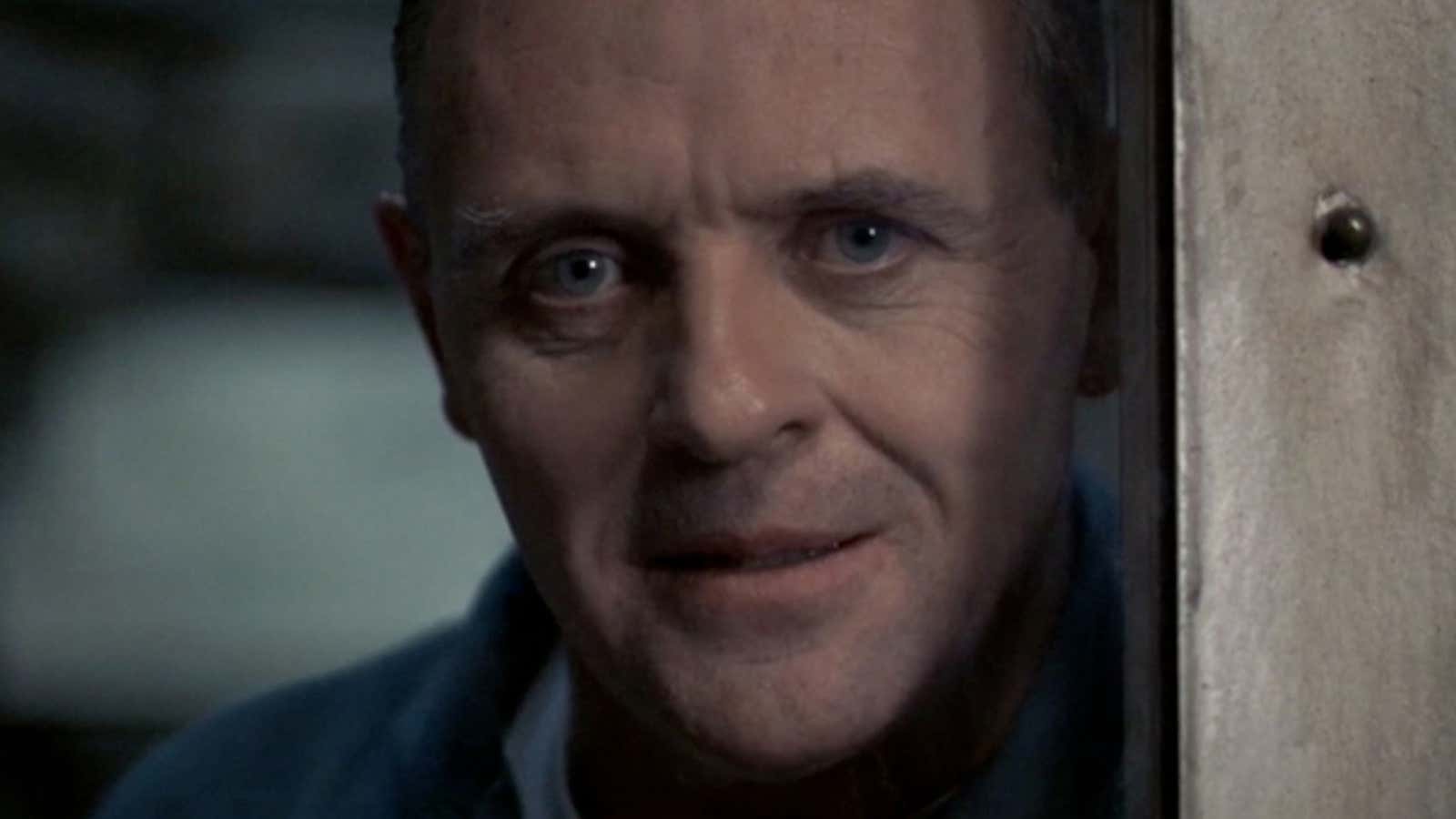Some of the most famous psychopaths of the silver screen are anything but, according to an extensive analysis by forensic psychiatrist Samuel Leistedt. In fact, you probably have the wrong idea about psychopaths in general—and you almost certainly know a few.
A psychopath, Leistedt told ScienceNews, is someone who lacks empathy. “They’re cold-blooded,” he said. “They don’t know what emotion is.” To create a cinema-based curriculum for teaching psychiatry students about psychopaths—and about how popular perception of them has shifted over time—Leistedt watched 400 movies depicting psychopaths (and “sociopaths”—some distinguish between the two, but there’s no official diagnostic difference) and diagnosed each and every one of their featured villains. Once he weeded out supernatural characters, he was left with 105 male and 21 female characters to analyze with a team of 10 forensic scientists.
In the results published in The Journal of Forensic Sciences (paywall), the researchers say a pattern emerged: Nearly all the villains were either socially functional misfits with a compulsion (usually sexually motivated) to kill, or extremely violent, chaotic mass murderers with “idiosyncratic behaviors and appearance.” Norman Bates of Alfred Hitchcock’s Psycho would be an example of the former, and Leatherface in The Texas Chain Saw Massacre represents the latter. Additionally, many “psychopaths” in film are actually “psychotic.” Norman Bates, for example, experiences severe delusions and hallucinations during his stint as a villain—and being disconnected from reality isn’t a psychopathic trait.
And the king of the hollywood psychopaths—Hannibal Lecter of the Silence of the Lambs franchise—failed to impress Leistedt and his colleagues. The quintessential “hollywood psychopath” has certain characteristics—ones that aren’t always present in real-life psychopaths. The researchers list high intelligence (and a preference for intellectual pursuits like music and fine art), a vain, “cat-like” demeanor, a prestigious career, a calm and “always-in-control” attitude, and an “unrealistic, exceptional skill at killing people, especially with blades or household objects.”
Not surprisingly, this combination of attributes is difficult to achieve in real life, empathy or none. But this character archetype, the “elite psychopath,” has become increasingly common in the literature and cinema in recent decades.
If playing a violin over the bodies of thine enemies does not a psychopath make, what do the accurately diagnosed look like? The current diagnostic tool is a checklist (Psychopathy Checklist Revised, or PCL-R) of traits that include callousness and a lack of empathy, shallow emotions (in other words, the inability to experience extreme guilt, shame or fear), an inability to accept responsibility for one’s actions, overconfidence, insincerity, selfishness, an inability to plan for the future, impulsivity and violence. Psychopathy is now considered to feature a unique brain structure: Studies have shown that brains of those with many of these traits show deficiencies in the amygdala, which is associated with emotions, and the orbitofrontal cortex, which aids in decision making.
Sometimes, a psychopath can look a lot like your friendly neighborhood neuroscientist; James Fallon made headlines when he accidentally diagnosed his own brain scan as showing psychopathic features. After further research and self-evaluation, Fallon categorized himself as a “pro-social psychopath”—one who can keep his behavior within socially-acceptable bounds, despite not feeling true empathy for others. It’s not as crazy as you might think, since around 1% of the population is estimated to embody true psychopathy. “I’m obnoxiously competitive,” Fallon told Salon. “I won’t let my grandchildren win games. I’m kind of an asshole, and I do jerky things that piss people off.” At the end of the day, though, he’d “rather beat someone in an argument than beat them up.”
